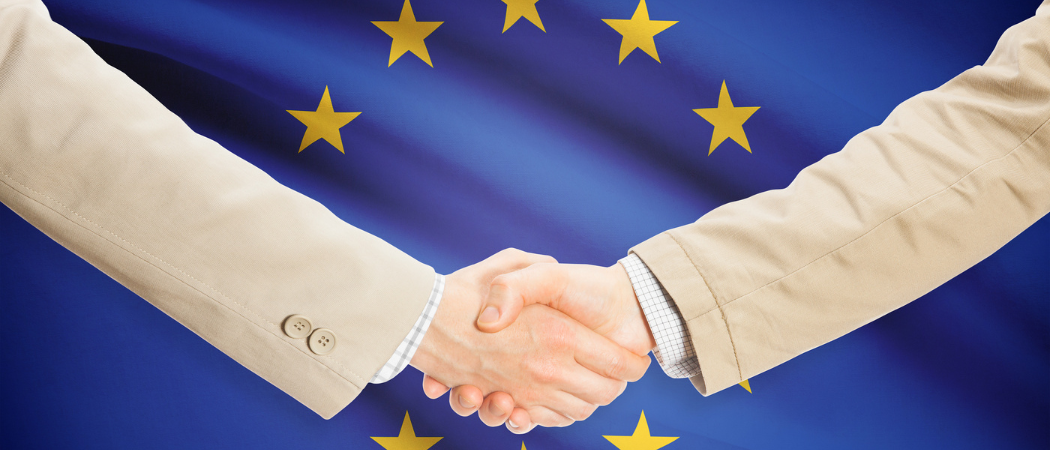Shifting geopolitics and an undermining of trust in science call for a fresh approach to science diplomacy, experts say

Photo credits: Niyazz / BigStock
The European Commission should harness networks of European scientists living outside the EU and train more of its own diplomats in science, to bring the full weight of science diplomacy to bear in foreign policy.
That is the conclusion of 130 or so experts who have spent the past year working on what an integrated framework for EU science diplomacy could look like.
The final report is yet to be published, but it was previewed at the World Science Forum in Budapest last week, where delegates were in anxious mood, pointing a disintegration of the interface between science and policy, and the dangers posed by the intentional undermining of trust in science.
Many heads of international science institutes at the forum are worried this means science’s role in policymaking is waning.
At the same time, there have been what many see as explicit failures of science diplomacy, in the building of scientific ties and funding of research in Russia that preceded the full scale invasion of Ukraine, and the way the EU’s open approach to collaborating on R&D with China has gone hand-in-hand with a souring of diplomatic relations.
It’s against this background that the European Commission set out to create a new science diplomacy framework, to make it more relevant in an increasingly polarised world and advance Europe’s diplomatic goals in the face of shifting geopolitics.
As things stand, science diplomacy efforts in Europe are largely uncoordinated. To address this, the expert report calls for strategic instruments that focus on big-picture issues, such as how to deal with countries that do not share EU values; operational instruments that support the set-up of structures and the institutional changes required drive the EU’s ambition to be a science diplomacy leader; and enabling instruments that create channels for diplomats and scientists to be more engaged in science diplomacy.
As one example, there should be more support for European scientists working in labs abroad. “Not everybody who’s a diaspora scientist wants to be a science diplomat […] but many of them do,” said Jan Marco Müller, leader of the science diplomacy project at the European Commission. “What we see at the moment is that many of these scientist diaspora organisations have grown bottom-up, but [they] have no money.”
The expert group recommends starting a discussion on how these groups can be supported and provide advice to embassies or EU representations.
This could help in advancing science diplomacy objectives of promoting international scientific collaboration, providing inputs for foreign policy decision-making, and enhancing the EU’s soft power.
In addition, the expert group’s report recommends a rethink of how the EU works with science attaches in member state embassies across the world, and explores ways to create science diplomacy communities, such as through hosting science diplomacy conferences.
Nurturing more diverse science diplomacy is a recurring theme in the recommendations. Müller notes that although some diplomats covering environmental deals work a lot with scientists, it’s still rare. Even fewer diplomats have a scientific background.
“When we negotiate free trade agreements we need scientists in the room, because of disagreements over phytosanitary standards, food safety standards, and other things,” Müller said. “There’s actually a lot of knowledge we need to inject in diplomacy.”
One way to do this, suggest the experts, is by having a science and technology element in diplomatic training.
The experts also note scientists and diplomats often have a hard time interacting with each other, due to different work standards and expectations. Science diplomats could work as a bridge between the two, providing something understandable for diplomats and translating political considerations for scientists.
Focused minds
The need for a fresh approach to science diplomacy was underlined by the final declaration of the World Science Forum. Pointing to how distrust and outright denial of science have been incorporated into some political and social agendas, delegates said, “We recognise the evolving role of science diplomacy in bringing together science and policy to address these challenges and promote science for peace.”
The commission has toyed with a science diplomacy makeover for a while, but the 2022 Russian invasion of Ukraine evidently focused minds, as the Commission scrambled to cut off research links with Russia. Some scientists criticised the moves to isolate Russian researchers, while others later confessed to being confused about how they should react.
Following this, the foundations for the upcoming expert report were laid at the first European Science Diplomacy conference, held in Madrid last December. There, delegates concluded a common European framework for science diplomacy should aim to harness Europe’s growing network of science diplomats and find synergies between scientific and diplomatic communities.
Once the expert report is handed over to the Commission it could form the basis of a policy document on science diplomacy, and the Commission could also pursue a Council recommendation on science diplomacy.
But the exact date of report’s release is unclear. Commission officials told Science|Business it is scheduled for early December, but during the preview the panel said publication would be January 2025. That is because the expert group wants it to include a foreword by the incoming commissioner for research, Ekaterina Zaharieva.
“I hope that this report will be a foundation for national reports on science diplomacy, and also even a textbook for diplomats,” said one of the experts, Dovilė Gailiūtė-Janušonė, science and innovation adviser in Lithuania’s foreign affairs ministry. She said the appetite already seems to be there, with many in foreign affairs and other Lithuanian government ministries asking when it will be published.





 A unique international forum for public research organisations and companies to connect their external engagement with strategic interests around their R&D system.
A unique international forum for public research organisations and companies to connect their external engagement with strategic interests around their R&D system.